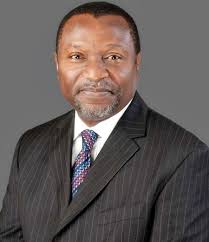Nigeria has set oil production of 2.3 million barrels per day at a price benchmark of $60 to support its 2019 budget.
It also indicated exchange rate of N305 to a dollar, 9.98 inflation rate, 119,28 trillion nominal consumption, 139.65 trillion nominal GDP and 3.01 percent GDP growth rate.
These were disclosed in Abuja on Tuesday during a public hearing on the Medium Term Expenditure Framework (MTEF) held by the House of Representative Joint Committee on Finance, Appropriation, Aids, Loans and Debt Management headed by Mr. Babangida Ibrahim.
The Director-General, Budget Office of the Federation, Mr. Ben Akabueze, said the Economic Recovery Growth Plan (ERGP) projection for oil production was put at 2.4mbpd, oil price benchmark of 60 dollars per barrel.
He added that exchange rate of N305 to a dollar, 13.39 inflation rate, 106, 03 trillion nominal consumption, 126, 36 trillion nominal GDP and 3.01 percent GDP growth rate.
Akubueze said the second quarter of 2017, Nigeria was expected to continue to experience growth from 0.8 percent in 2017 to 2.1 percent in 2018 and 3.01 percent in 2019.
In his summary of the 2018 performance, Akabueze said: “As at the end of 2018, federal government aggregate revenue was N3.96 trillion, which is 55 percent of the budget and which is higher than the 2017 revenue.”
The breakdown, according to him, was oil revenue (N2.32 trillion – 77 percent of budget and 64 percent higher than 2017); Company Income Tax (CIT) of N637, 25 billion (80 percent of budget and 1.7 percent higher than 2017) and Customs Collection of N303, 91billion (94 percent of budget and 16 percent higher than 2017.
According to him, notwithstanding the softening in the international oil prices in late 2018, the considered opinion view of most reputable oil industry analysts was that the downward trend was not necessarily reflective of the outlook for 2019.
“Currently, the average Brent oil price projection for 2019 by 32 different institutions with relevant expertise is still about 69/b dollars,” he said.
He assured Nigerians that the government would sustain its fiscal strategy of directing resources to most productive and growth-enhancing sectors while efforts will be intensified to increase revenue.
He added that the government will equally leverage the private capital to supplement capital allocation from the budget.
“We will closely monitor the situation and will respond to any sustained changes in the international oil price outlook for 2019.
“The budget proposal seeks to continue the reflationary and consolidation policies of the 2017 and 2018 budgets respectively, which helped put the economy back on the path of growth,” he said.
In her remarks, the Minister of Finance, Mrs. Zainab Ahmed, also assured that the federal government had evolved a new revenue strategic growth agenda developed by her ministry to ensure a sustainable revenue flow system.
“We have identified new revenue streams and we’re working to tap into them.
“Especially the identification of new taxes for which we are working with the FIRS to bring that to fruition, of course with amendment to relevant tax laws.
“We are working now to implement the TSA to cover foreign accounts operated by government agencies in order to broaden the net and minimise leakages,” she said.
MM/GIK/APA


